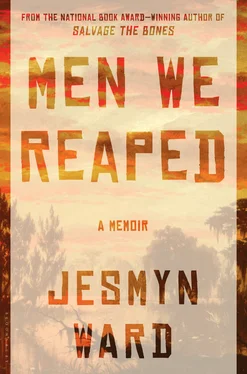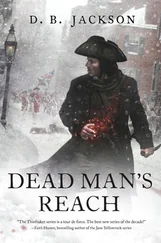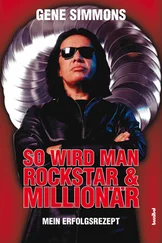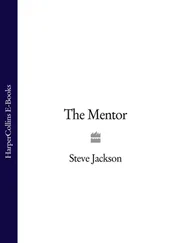This is how my father came back.
After my father moved his clothing and his kung fu knickknacks in with us, his dream, he told my mother, was to open a kung fu school. Perhaps having my father vocalize his dreams made her realize how strongly my father yearned for them. My mother acquiesced: You can do it , she said. He would take his children on as his first students, recruit others, find a space. Okay , my mother said. What my mother left unsaid: I’ll keep working, supporting us all, while you try to live your dream . Her sacrifice remained unacknowledged. One day , my father said, the school will support the family . I think a part of my mother wanted to believe that this was the truth, so she agreed.
First, my father arranged to teach classes in an after-school program in Biloxi, and then he arranged to teach a class at a dance studio in Pass Christian, and another in Gulf-port. He recruited students. The Biloxi program never had more than two, so he cancelled those classes and concentrated on the others, which had more, around ten in Pass Christian and fifteen in Gulfport. He carted us around with him to classes four out of five nights of the week, classes that lasted three hours at a time. We were decent students; he’d taught us forms and one-step sparring since we’d lived in my grandmother’s house in DeLisle. We learned the Eight Elbow form out on the patchy, sandy front yard. In our classes in Gulf-port and Pass Christian, my father made us do endless sets of sit-ups, push-ups on our knuckles, forms, and sparring. While this was a great start for his business, there still wasn’t enough money coming in from students to cover expenses. Once he paid to rent the spaces, there was barely enough money to put gas in the car. This became apparent to me one night after our kung fu class. We were all in the car, including my cousin Aldon, leaving Pass Christian and returning to Gulfport. I noticed the car was gradually slowing.
“We ran out of gas,” my father said. I thought he was playing a joke on us. I started laughing.
“No, really,” he said.
“We’re running out of gas?” Josh asked. Aldon sat up straighter beside him and leaned forward. The car rolled to a stop. The road was dark.
“We have to push,” my father said. “Everybody but Nerissa and Charine out of the car.” This meant me, Josh, and Aldon. I was twelve, and they were both nine. We were all sore from our workout, still in our uniforms.
“Out,” my father said.
We got out.
“Come on, it’ll be fun,” he said, his teeth white in the dark. There were streetlights every quarter mile or so, but no traffic on this lonely country road, and my father didn’t want to leave us alone with the car. “There’s a gas station up at the corner. We need to make it to the pay phone.” We nodded. “Now, I’m going to steer and push from the front, while y’all three get in the back. Grab the bumper…. Yeah, that’s it.” My father walked around to the front of the car, leaned into the driver’s-side door, and grunted, straining.
“Now push!” he said.
We leaned against the car. It rocked but did not move.
“Come on. You have to push harder!”
We dug the toes of our tennis shoes into the rutted asphalt and pushed with our legs, our backs, our arms. We grunted like our father, straining, and the car rolled forward so slowly I could hardly believe it budged.
“Keep going!” Daddy said. “It’s right up the road.”
It wasn’t right up the road. It was at least a half mile up the road, but I didn’t know that. Every time I felt like I couldn’t push any longer, like my arms had burned to ash and my legs would crumple under me, I wanted to ask my father, Are we almost there? How close are we? But I wouldn’t. I didn’t have the energy to, and he wouldn’t have heard me anyhow. Instead I stared at the faint gleam of the car in the darkness and listened to Joshua and Aldon, on both sides of me, breathing in quick little huffs. I imagined a car coming up behind us, slowing to pass us, and then rolling down a window, offering us a ride to a gas station, gas from a spare gas can they kept in the back of their truck, anything so I could stop straining with everything in me, but no cars came. No kind strangers appeared. The air was warm as tepid bathwater, and as close, and the night bugs and the wind were the only things singing and moving in the patches of woods and yards around us. The final stretch of road before the store was up a hill, a steep hill. My father sounded like something in him tore when we crested the hill and rolled into the driveway of the closed gas station, and I felt quivery and soft: useless. The car came to a stop in the parking lot, which had been paved so long ago that it had been ground to gravel. My dad fished out a quarter from his gym bag in the car and dialed my mother from the pay phone on the sidewalk that fronted the shuttered corner store. Joshua and Aldon and I climbed into the car, so tired we didn’t speak. Nerissa and Charine slept in the front seat. My father joined us. He too was quiet until my mother arrived with a can full of gas.
“When we get home, y’all need to take a bath and get in bed,” she said as she handed my father the gas can. It was late. Her mouth was tight. She climbed back into her car, which she had left running, and waited for us.
I imagine my mother nursing her resentment that her hard work, her cleaning of toilet bowls and mopping of four-thousand-square-foot houses, was allowing my father to pursue his dream. I imagine that the reality of pursuing his dream took my father aback; that in his head, he saw himself with eager, malleable students like a wise martial arts master in the kung fu films we sometimes watched as a family on Sundays. For those masters, money was never a concern, and they seemed to be childless. I imagine both my parents began to resent their roles in the family. My mother’s coping mechanism for this was to become even more silent, even more strict and remote; one of my father’s was to watch movies, which was an escape he could share with us.
My father led us through the woods behind our house into a cluster of backyards and on through the neighborhood to a strip mall along Dedeaux Road in Gulfport. At the video store, my father would pick out three movies he wanted to see, and then he allowed me and Joshua to pick the other.
Joshua and I lived in the horror section. We stood side by side, studying the pictures on the movie cases, which were always badly drawn and mildly threatening. I read the synopses seriously, ravenously, which was the way I read books. After we’d rented all the store’s mainstream horror movies, we began renting the less well-known: movies with leprechauns and ghoulies and blobs and strange sewer-dwelling animals. My mother purchased a popcorn machine, and most weekends found us on the carpeted floor with a big bowl of popcorn between us. It was the cheapest way for my parents to entertain four children. We loved it. For those hour-and-a-half increments, the fantasy of a two-parent family, what we’d longed for in my father’s absence, lived for us in perfect snatches. Ignorant of my father’s and mother’s dissatisfaction, we were butter-faced and giggling and happy.
One night in the winter of 1990, my mother received a phone call. It was from a woman she knew from DeLisle, who worked at the local police department in Gulfport.
“Do you know where your car is?”
When the woman told my mother the address, my mother knew where my father was. He was with his teenage love. He had parked my mother’s car around the corner from his girl’s house. I assume he’d told my mother he wasn’t seeing her anymore, that he was committed to their relationship and to raising a family together while she worked and he tried to establish his martial arts school. She wouldn’t have taken him back without those words. I can imagine the dread she felt when she heard that woman’s voice on the phone, the way it washed to pain across her chest before it sank to her stomach. She would have sat for a moment when she got off the phone, staring at the floor, looking at a wall, hearing us through the perfect, awful silence in her head fussing or playing or watching TV in the background. My mother would have steeled herself, but this steel would have been worked thin, thin as aluminum over her love. And underneath it all would have been fatigue. Her joints would have hurt, the marbles of her knuckles already releasing a steady, slim stream of pain that would, five years later, be diagnosed as arthritis. This was what it meant to clean. This was what it meant to work. This was what it meant to forget whatever she had dreamed the night before and to stand up every day because there were things that needed to be done and she was the only person who could do them.
Читать дальше












